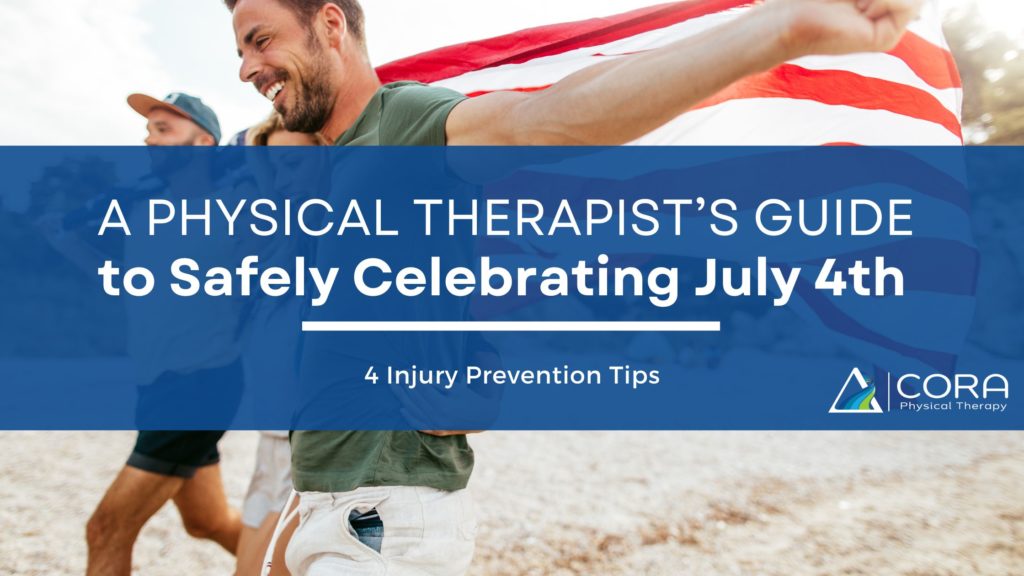While this fact may not seem revolutionary, the days surrounding Independence Day yield more U.S. hospital emergency room visits than any other holiday of the year. Here’s how to have fun and stay safe!

The Fourth of July. Independence Day. America’s birthday. Whatever you call it, July 4th is synonymous with fireworks, fun, family, friends, food and festivities. Despite the celebration, too many Americans also finish the night in the hospital emergency room.
According to findings from the Pew Research Center, more than 91,000 Americans sustain serious injuries between July 4-5, the highest two-day total for hospitalizations throughout the year.
It should come as no surprise that fireworks are the top cause of injuries. More than half of all the fireworks-related injuries sustained by Americans each year occur during the first week of July.
According to a 2020 report by the U.S. Consumer Product Safety Commission, about 15,600 people suffered fireworks-related injuries and were treated by hospital ERs. Eighteen of those people died.
Hands and fingers (30%) are the body part most frequently injured by fireworks, as fuses burn faster than advertised, shortening the time for people to move. Injuries sustained from fireworks can include dislocations, broken bones, loss of sight and hearing, disfiguration, amputations, and even death.
If you are setting off bottle rockets, rockets, sparklers or any other type of fireworks, always exercise extreme caution. To protect your hands, read and follow all instructions, don’t trust the wick, and stand 500 feet away from the launch site.
Aside from fireworks, Independence Day offers ample opportunity for preventable injuries. July’s high temperatures combine with family time, games, swimming, boating, and parades to create a perfect storm for Americans.
To feel your best while celebrating freedom, the physical therapy and occupational therapy experts at CORA have compiled some top injury prevention tips:
Hydrate, Hydrate, Hydrate
As a rule of thumb, by the time you feel thirsty, the concentration of your blood has already increased by 2%. Proper hydration is essential for a broad range of functions, including increasing brain and digestive function, regulating body temperature and lubricating joints. Heat illness is the enemy of fun, causing fatigue, dizziness and muscle cramps.
Without even checking the forecast, it’s safe to assume that Independence Day will be hot near you. In the heat, you’ll expel more fluid through sweat, so it’s more important than ever to fuel up on water. According to the U.S. Institute of Medicine, adults can produce as much as three or four liters of sweat per hour in extreme conditions, so keep the bottle handy and limit alcohol consumption.
Warm-Up and Stretch Before Backyard Sports
Before flexing on your family and friends, take a few minutes to engage in a dynamic warm-up to prepare your muscles and connective tissue.
Warming up before participating in physical activity stimulates blood flow, expands breathing and elevates muscle temperature. Most importantly, dynamic warm-ups lower the risk of sustaining injuries, such as joint pain and muscle pulls or tears. Consider lightly jogging, doing high knees, arm rotations, and jumping jacks to get your blood pumping.
Pair your warm-up with a stretching regimen to fully engage ligaments and tendons. The U.S. Centers for Disease Control and Prevention provides guidance for stretching, including holding positions for 10-30 seconds, breathing slowly, staying balanced, and only pushing your body to a comfortable limit.
Don’t Be A Hero
Whether you’re transporting a cooler full of chilled drinks, cornhole boards or lawn furniture, don’t lift alone. Grab a family member or friend to help you lift heavy objects, and avoid shoulder injuries, back pain and lumbar injuries.
In 2001, the Bureau of Labor Statistics found that more than 36% of sick days resulting from injuries could be attributed to back and shoulder injuries. Improperly lifting and carrying heavy loads has a strong correlation to chronic back pain and joint injuries throughout the body.
Before you grab that cooler or heavy object, recruit a few others to help share the load. To prevent injuries, always bend at your knees instead of the waist, and lift with your glutes and quads instead of your back and groin.
Mind your posture
Maintaining a good posture can be challenging during times of relaxation and celebration, but it has been linked to better back health, higher energy levels and increased lung capacity. Bad posture is one of the key causes of lower back pain, which affects more than 25% of American workers.
While preparing food by the grill, sink or counter, stand up to your full height and straighten your back. Keep your knees slightly bent to prevent ankle pain and avoid the risk of fainting. Position your feet shoulder-width apart and distribute your weight more towards your toes, instead of your heels.
If you’re sitting to eat, watch fireworks or enjoy a parade, place your feet flat on the ground or a footrest to keep them from dangling unsupported. Always keep your knees at hip-level or below and your ankles out in front of your knees. Avoid crossing your legs, relax your shoulders and ensure that your seat supports your middle and lower back.
The team at CORA wishes you a joyful and safe July 4th! But if you find yourself strained, sprained or injured on July 5th, don’t worry! Schedule a visit with your local CORA clinic to recover from your Independence Day festivities.
